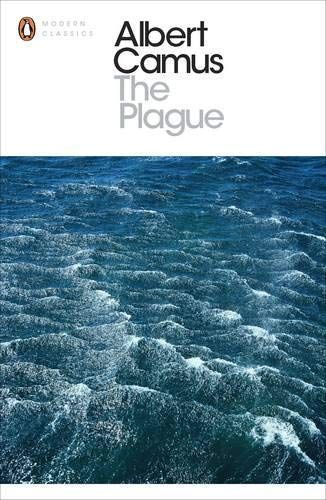
The Plague
The townspeople of Oran are in the grip of a deadly plague, which condemns its victims to a swift and horrifying death. Fear, isolation and claustrophobia follow as they are forced into quarantine. Each person responds in their own way to the lethal disease: some resign themselves to fate, some seek blame, and a few, like Dr Rieux, resist the terror. An immediate triumph when it was published in 1947, The Plague is in part an allegory of France's suffering under the Nazi occupation, and a story of bravery and determination against the precariousness of human existence. An immediate triumph when it was published in 1947, The Plague is in part an allegory of France's suffering under the Nazi occupation, and a story of bravery and determination against the precariousness of human existence.
Reviews
p.@softrosemint
Joey Coffin@joeycoffin
div. ☆@sunsidecoast
Santiago Alejandro Crime@sacrime
hessensitive@hessensitive
🏹@kenzia
Cait🪼@figs0up
hileahrious@hileahrious
jess@visceralreverie
Hannah Yang@hannahyang
Martin Meyer@martin
Cristina@cristinaolivia
Daniel K@statuskuo
Roger Amundsen@gododger
Andrew Louis@hyfen
giuli@sottosole
Vojtech@vojtech
Fraser Simons@frasersimons
Blazgorb Throxis@iwillbestokedwhenthequeendies
Danial Imran @nyannyal
Amanda Rocha@wanderermandy
Nick Chmura@prestoleopard
Sunyi Dean@sunyidean
Brianna Best@bookingitwithbri
Highlights
han@pistachio
Page 285
han@pistachio
Page 194
han@pistachio
Page 174
han@pistachio
Page 172
han@pistachio
Page 131
han@pistachio
Page 110
han@pistachio
Page 103
han@pistachio
Page 76
han@pistachio
Page 37
🏹@kenzia
Page 66
🏹@kenzia
Page 66
🏹@kenzia
Page 59
Jena@jenana
Page 22
Cristina@cristinaolivia
Cristina@cristinaolivia
Cristina@cristinaolivia
Cristina@cristinaolivia
Cristina@cristinaolivia
Roger Amundsen@gododger
giuli@sottosole
Page 352
giuli@sottosole
Page 346
giuli@sottosole
Page 339
giuli@sottosole
Page 336
giuli@sottosole
Page 335